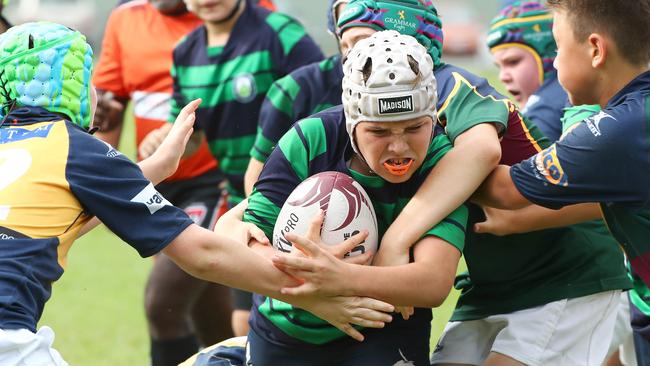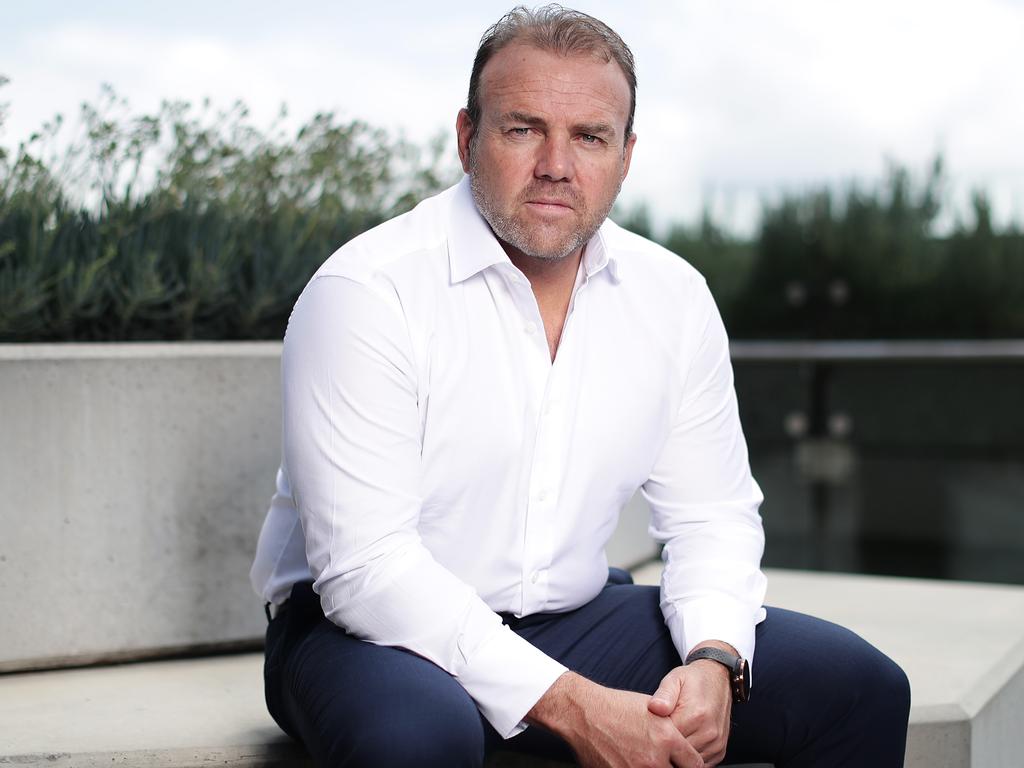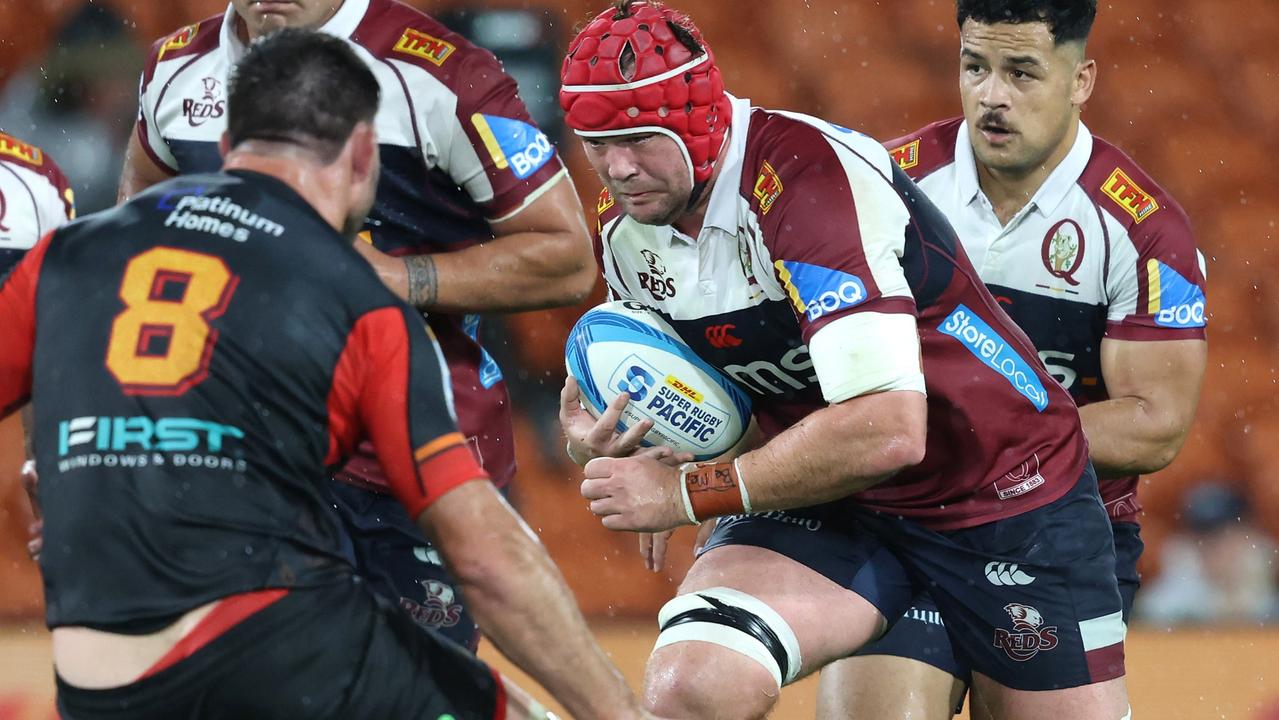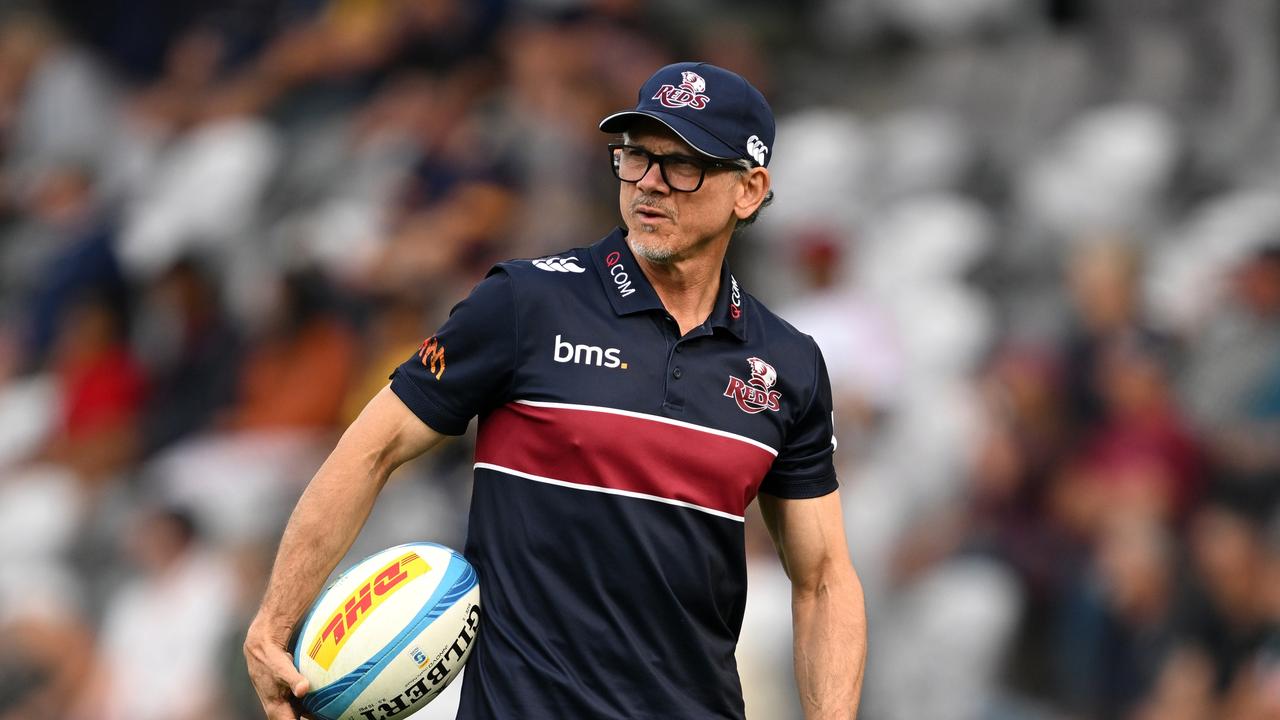
Rodger said, “Put Alan in charge of rule changes to give us excitement, entertainment and another Grand Slam.”
Roger, I have enough to do as it is. But Ian volunteered, “I don’t believe it. Someone finally admitting that the modern game and its laws are a disaster.”
And Ian’s comment, “Ban lifting in the line out.” I couldn’t agree more.
But let us begin with the Brumbies’ gritty win over the Hurricanes last weekend.
The two Lonergan brothers are emerging as great finds for Australian rugby. Lachlan is the dynamic hooker and Ryan is the crafty halfback, who, you may recall, earlier this year, kicked a monster matchwinning penalty goal against the Rebels.
These young players would not be out of place in a Wallabies squad to take on France.
To the game itself and the repetitive observation of the rugby family is that the best way to move forward is to democratise our game and give the fans and the grassroots participants a say in how to run it.
At the national level, that means rugby supporters paying an annual membership for the right to secure season tickets and for the right to vote for the President of Rugby Australia. Most of these people are involved with club or school rugby as players, parents, coaches and organisers.
The model I have proposed would give the rusted on supporters and participants a direct connection to those in charge of the game.
Our collective national goal should be to produce a winning Wallaby side. If that is our primary objective, then all decision making from grassroots to the professional game is easy.
Will the decisions we make help the Wallabies to be the best team in the world?
A winning Wallaby side means maximising broadcast deals, sponsorships and match day revenues.
Greater income at the top means more resources to grow and develop talent at all levels.
Will Carling, the former England captain famously said, “England Rugby will only improve when the 57 old farts running the game are gone.”
He was referring to the multiple agendas and lack of cohesion. There are too many “old farts” in Australian rugby, holding up progressive governance. Things need to change radically and quickly.
Which brings me to player pathways. With so many state and national organisations clambering for relevance, our player pathways must become more streamlined.
The most important aspect of a talent development program is taking a player-centric approach. What is best for the players you are trying to develop?
This is not happening.
If you have a talented son playing first XV at one of the big rugby schools around the country, he would have already played about 10 matches for his school in term two.
Before that, he probably played about the same number of fixtures in term one for a rugby league or club rugby union team. Then comes the representative season in the term two holidays.
After 20 rugby matches, many of the youngsters will be carrying niggles and will probably be in need of a bit of a rest.
In terms of representative rugby, they need one clear pathway.
Instead our talented players are confronted with a confusing labyrinth run by competing parties.
The rugby academies in each state linked to the professional Super Rugby franchises are running excellent programs funded by Rugby Australia.
This should be the one and only pathway to lead young talent into playing for a Super Rugby team and, maybe, even the Wallabies.
Instead, the School Representative Programs also want their pound of flesh. So these coming holidays, after our best young 16 to 18 year olds in the country have played about 20 matches. This is what they face:
In week one of the break, they will head off to their Super Rugby Academy Programs.
In week two of the break, the antiquated Representative Schools’ Program kicks in and the boys are asked to play too many games without sufficient rest and recovery.
In essence, this week is more about the schools keeping their representative traditions alive than it is about genuine player development.
The representative schools program has been superseded by the Rugby Australian Academies program and should be disbanded. They are not looking after our next generation of elite players. We need to put the players first.
That said, what about the French?
When my Wallaby team faced the French in the mid-80s, France had a backline full of creative players and a ferocious forward pack.
They were the best team in Europe when we faced them at the SCG.
In the tour match immediately before the Test, the French team smashed the Queensland side, 48-9.
All of the Queensland-based Wallabies were in that demoralising tour match.
I spoke to them after that game and told them we’re on a different plane and we’d be OK.
The profile of the French team was very similar to that of this current side. The French always have a very strong set piece, they like to scrum and drive mauls and they have strike power in the backline.
They are wonderful with the ball in hand; they time their passes brilliantly and they love to offload and keep the ball alive.
Back in 1986, we had a simple plan. First, we targeted the brilliant fullback, Serge Blanco, with high balls.
Then we worked over their tight five by attacking the blindside off the back of some big midfield carries from the stand-in centre, Michael Cook, who was magnificent.
His brave ball carrying created a midfield platform that enabled the Wallabies to isolate the big French tight five forwards. Nick Far-Jones, Campo and the great Michael Lynagh did the rest.
When the Wallabies start doing their homework on how to beat France, there is no doubt they will look at the vision from the France-Scotland game in this year’s Six Nations.
Scotland found a way to beat them on French soil for the first time in 20 years.
Firstly, Scotland kicked well, forcing the French to play from deep in their own half.
They hate it.
If the French were to score from deep they would be forced to take risks.
Second, like my Wallabies in 1986, the Scottish made a point of attacking the blindside to isolate big French forwards.
Thirdly, the Scots scrambled in defence very well to negate the French offloading game.
That is all you can do when the French backs find their rhythm, scramble and defend for your life.
Finally, the Scots had to be clinical when they got close to the French tryline.
My advice to the Australian coach and the current Wallabies is this — keep your tactics simple and learn from Scotland’s historic win in Paris this year.
Good luck to our Super Rugby teams for their matches this weekend.
We are making progress.






My thanks for your many comments last week. They are instructive and, some, flattering.